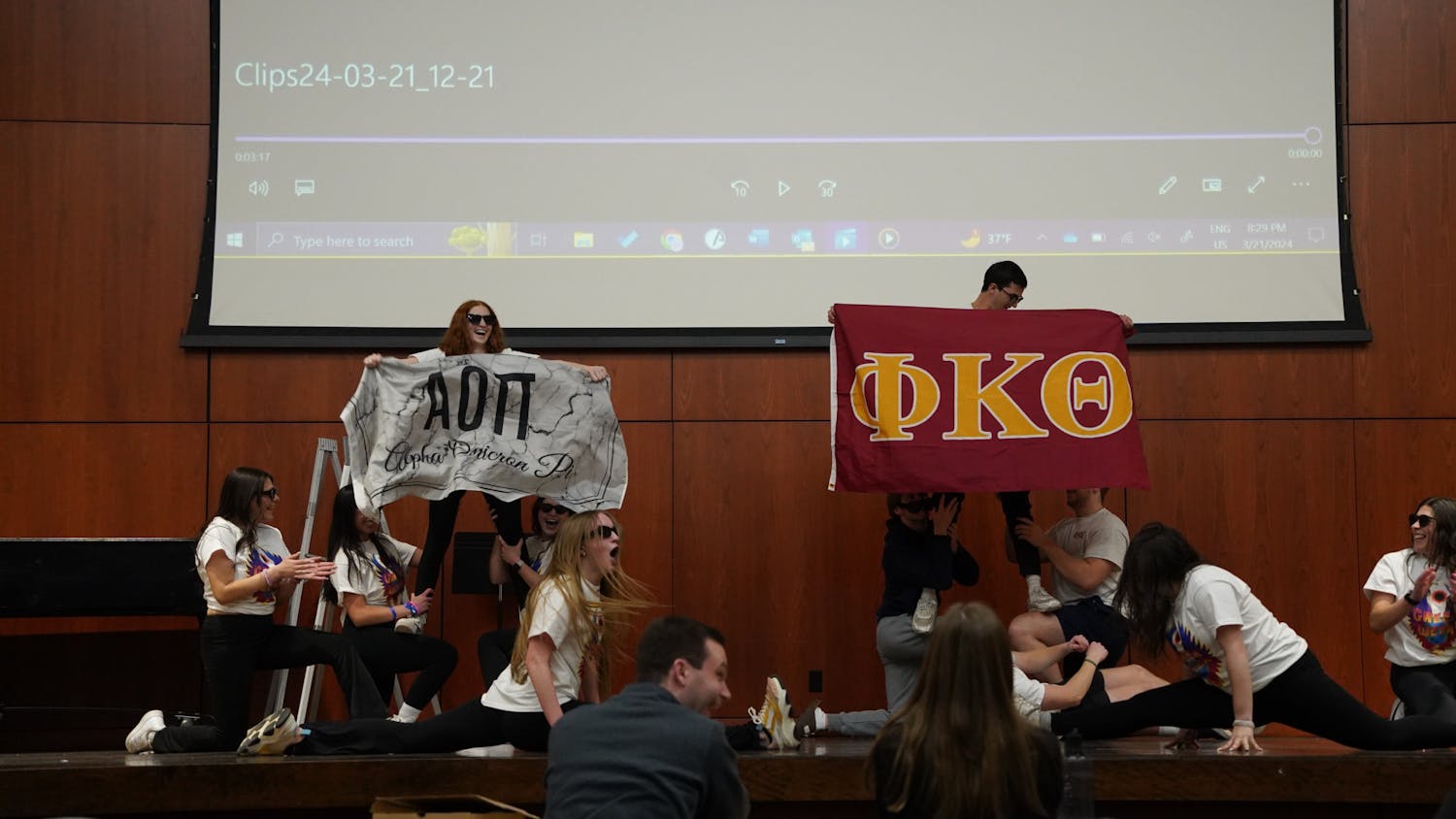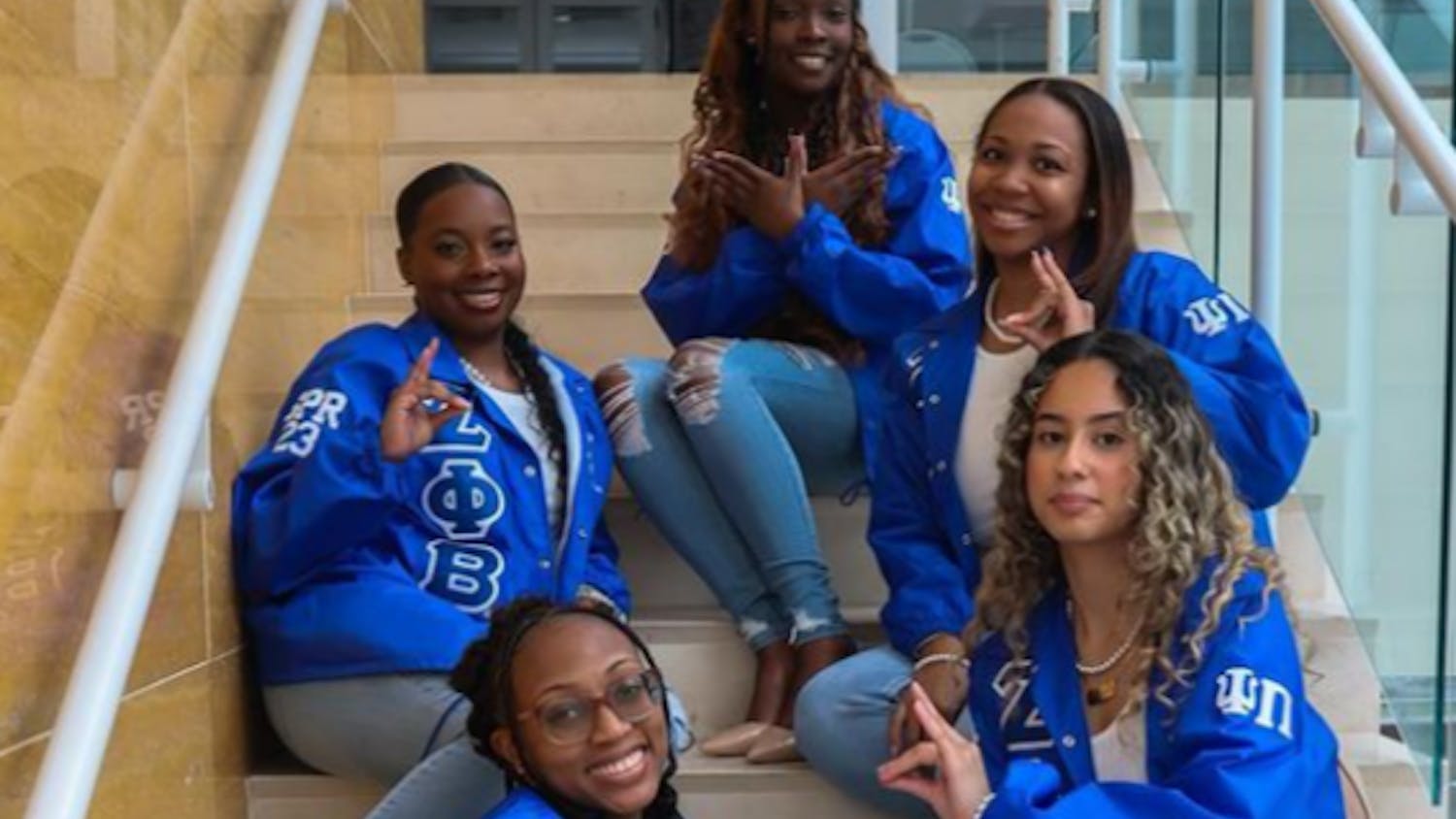The Stillman School of Business’ Center for Entrepreneurial Studies will hold its 12th annual SHU Entrepreneur Hall of Fame Induction Dinner on Sept. 27. The event will honor and recognize three successful alumni who are entrepreneurs from across the country.
[caption id="attachment_24216" align="alignnone" width="838"] Photo via www.shu.edu[/caption]
Susan Scherreik, the director of the Center of Entrepreneurial Studies, described the inspiration behind this award. “The honorees serve as role models for our students to inspire them to dream big and know that the sky is the limit in terms of their future professional achievements,” Scherreik said.
The recipients of this year’s award are Abe Kasbo, CEO of Verasoni Worldwide, and Ralph and Marylee Evangelista, managing members of Frazer, Evangelista and Company, LLC.
Kasbo graduated from SHU with a B.A. in political science and international relations in 1994, and a M.A. in public administration in 1999. He created Verasoni Worldwide, a marketing and public relations firm and has clients all around the world, from the Middle East to Southeast Asia.
Kasbo said he sought to create a different kind of company in the marketplace. “I wanted a combination of consulting and creative,” Kasbo said. “So by putting this together, we could build a powerful platform for businesses. That’s really what makes us different in the marketplace, we marry our services to our client’s business.”
Kasbo is the executive producer of the award-winning documentary, “Arab-Americans,” which was aired on PBS. He also started a nonprofit organization that helps Syrian immigrants.
Kasbo said that the most important skills that make a successful entrepreneur are people and communication skills. He added that he consistently makes an effort at least twice a week to have lunch with someone, whether a client or a colleague, in order to constantly have a flow of communication.
Some of these topics include client work and business development as well as internal operations issues.
This way, everyone can work more as a team pushing towards a common goal, he said.
Additionally, Kasbo said the most important trait to hold is “being determined to achieve your goals and not listening to the noise around you.” He described Seton Hall as an “ecosystem where you have the ability to question things,” and said that the school has been supportive and influential.
Joyce Strawser, the dean of the Stillman School of Business, agreed, echoing similar sentiments about what makes successful entrepreneurs.
“Successful entrepreneurs generally are creative thinkers who are good at (and enjoy) solving problems and challenges,” Strawser said. “They have to be self-disciplined, motivated and resilient and they cannot be afraid of failure.”
Strawser said she encourages students to utilize the SHU environment. “My number one piece of advice to students is to get involved early, even as freshmen, in extracurricular activities that will help them identify their strengths and interests,” she said. “These activities are so important in helping students define their future paths and develop skills that will enable them to thrive.”
Scherreik said she encourages students to join the Entrepreneurship Club, a club for students to learn and study more about entrepreneurship. As the club’s faculty advisor, she offers her guidance to students. Said Scherreik, “My goal is to cultivate the entrepreneurial mindset in all of our students at Seton Hall.”
Werdeh Hassan can be reached at werdeh.hassan@student.shu.edu.
Photo via www.shu.edu[/caption]
Susan Scherreik, the director of the Center of Entrepreneurial Studies, described the inspiration behind this award. “The honorees serve as role models for our students to inspire them to dream big and know that the sky is the limit in terms of their future professional achievements,” Scherreik said.
The recipients of this year’s award are Abe Kasbo, CEO of Verasoni Worldwide, and Ralph and Marylee Evangelista, managing members of Frazer, Evangelista and Company, LLC.
Kasbo graduated from SHU with a B.A. in political science and international relations in 1994, and a M.A. in public administration in 1999. He created Verasoni Worldwide, a marketing and public relations firm and has clients all around the world, from the Middle East to Southeast Asia.
Kasbo said he sought to create a different kind of company in the marketplace. “I wanted a combination of consulting and creative,” Kasbo said. “So by putting this together, we could build a powerful platform for businesses. That’s really what makes us different in the marketplace, we marry our services to our client’s business.”
Kasbo is the executive producer of the award-winning documentary, “Arab-Americans,” which was aired on PBS. He also started a nonprofit organization that helps Syrian immigrants.
Kasbo said that the most important skills that make a successful entrepreneur are people and communication skills. He added that he consistently makes an effort at least twice a week to have lunch with someone, whether a client or a colleague, in order to constantly have a flow of communication.
Some of these topics include client work and business development as well as internal operations issues.
This way, everyone can work more as a team pushing towards a common goal, he said.
Additionally, Kasbo said the most important trait to hold is “being determined to achieve your goals and not listening to the noise around you.” He described Seton Hall as an “ecosystem where you have the ability to question things,” and said that the school has been supportive and influential.
Joyce Strawser, the dean of the Stillman School of Business, agreed, echoing similar sentiments about what makes successful entrepreneurs.
“Successful entrepreneurs generally are creative thinkers who are good at (and enjoy) solving problems and challenges,” Strawser said. “They have to be self-disciplined, motivated and resilient and they cannot be afraid of failure.”
Strawser said she encourages students to utilize the SHU environment. “My number one piece of advice to students is to get involved early, even as freshmen, in extracurricular activities that will help them identify their strengths and interests,” she said. “These activities are so important in helping students define their future paths and develop skills that will enable them to thrive.”
Scherreik said she encourages students to join the Entrepreneurship Club, a club for students to learn and study more about entrepreneurship. As the club’s faculty advisor, she offers her guidance to students. Said Scherreik, “My goal is to cultivate the entrepreneurial mindset in all of our students at Seton Hall.”
Werdeh Hassan can be reached at werdeh.hassan@student.shu.edu.

Comments




